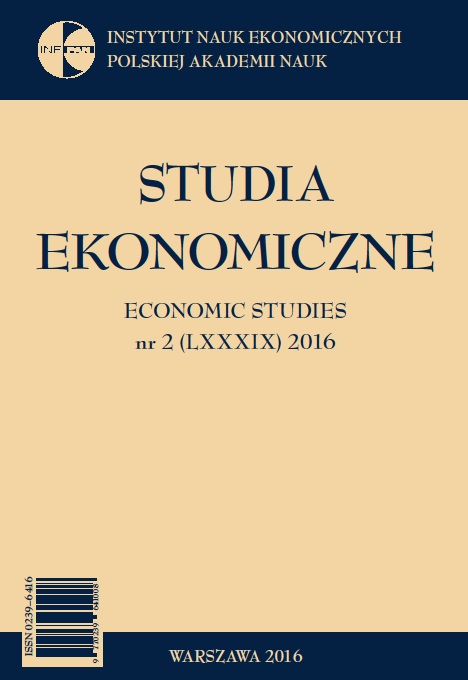Myślenie szybkie i wolne a optymizm dotyczący osobistych zasobów pieniężnych
Thinking fast and slow, and optimism about personal cash holdings
Author(s): Piotr GasparskiSubject(s): Economy, Micro-Economics
Published by: Instytut Nauk Ekonomicznych Polskiej Akademii Nauk
Keywords: dual system theory; slow thinking and fast thinking; system 1 and system 2; unrealistic optimism
Summary/Abstract: The aim of the article is to establish the relationships between cognitive reflection and an unrealistic optimism about the personal cash holdings. The article presents a study on the relationship between cognitive reflection and an unrealistic optimism about the personal cash holdings. It is assumed that people’s styles of information processing differ. Impulsive people use system 1 and fast thinking, and reflective people use system 2 and slow thinking. It was hypothesized that impulsive people demonstrate unrealistic pessimism or optimism about their future financial condition, while reflective people make realistic predictions. A questionnaire was used to survey 167 respondents. Cognitive reflection was measured by modified Frederick’s (2005) cognitive reflection test. The level of optimism was measured by a modified Weinstein’s (1980) questionnaire. The findings partially supported the hypothesis. Reflective people were found to demonstrate financial realism while impulsive people – unrealistic optimism. The findings are consistent with other studies indicating that impulsive people are not effective in their economic behavior. It was infered that unrealistic optimism was a manifestation of wishful thinking about the future economic events, induced by impulsive system 1. Therefore, people should contain optimism and activate reflective system 2.
Journal: Studia Ekonomiczne
- Issue Year: 2016
- Issue No: 1
- Page Range: 115-134
- Page Count: 18
- Language: Polish

